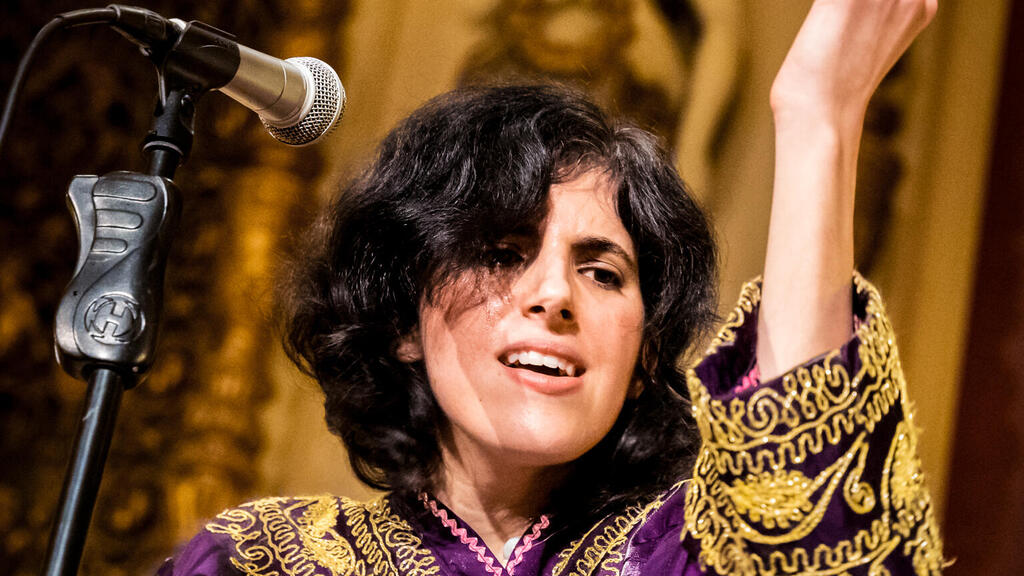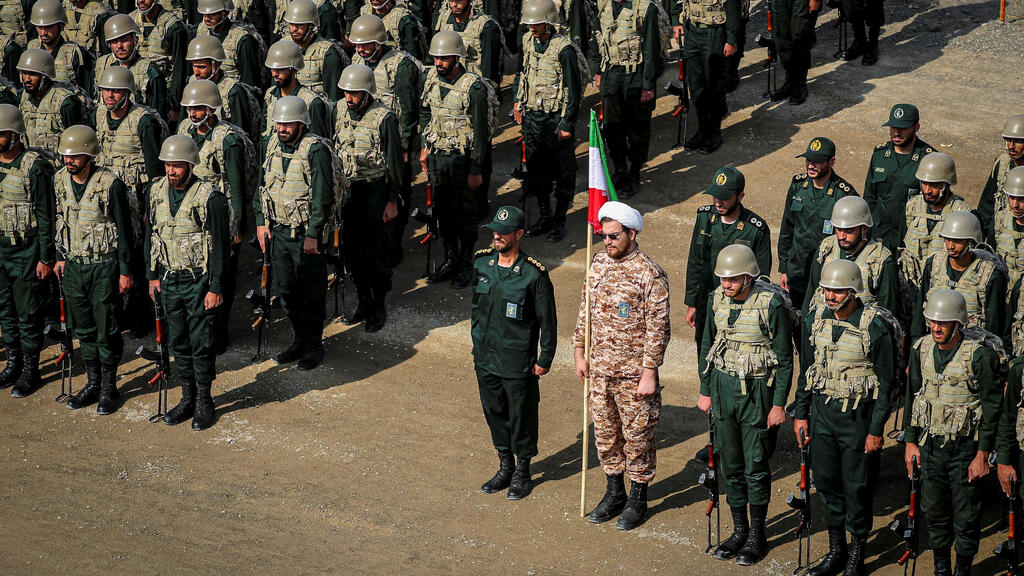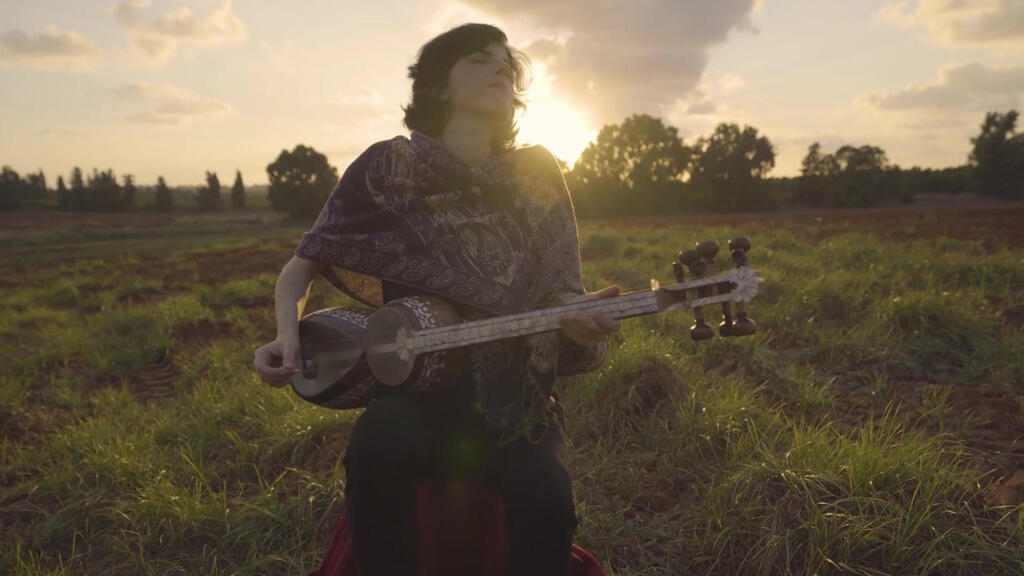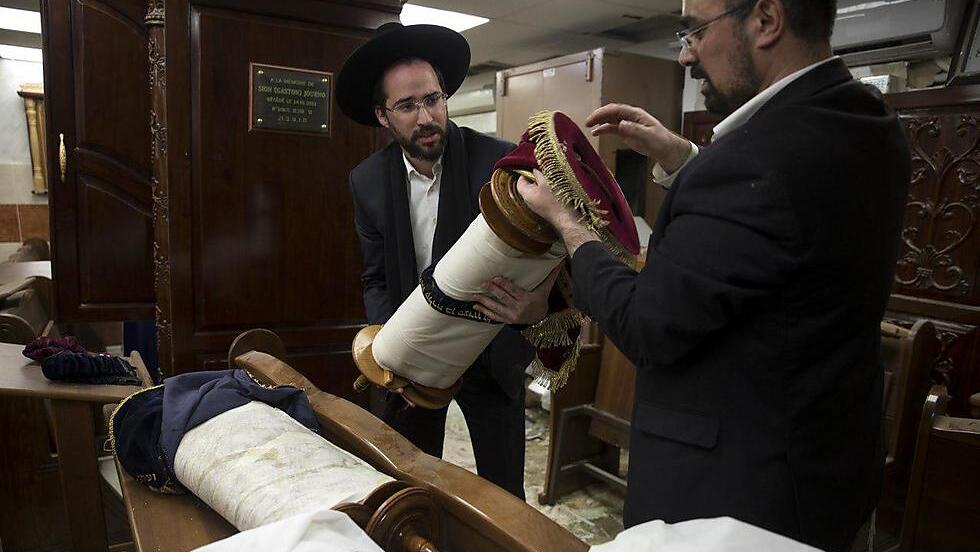In 2020, two years before the current wave of anti-regime protests engulfed Iran, a little known Israeli singer Hadar Maoz released a song titled “Enlightened Iran,” where she called liberation of the Iranian people from the yoke of the Islamist regime.
The song gained thousands of views on YouTube, majority of which came from an Iranian audience, who were already familiar with Maoz's music. In fact, In 2017, Maoz was invited to perform in Iran, but was unable to do so due to having an Israeli passport.
“Not everyone of my fans can respond or write publicly,” Maoz says. “Since my video has been released, I've become a target [in Iran]. Iranians often write messages and respond to me under a false name. I was banned in Iran over that song."
When asked how the connection between an Israeli artist and an Iranian audience is possible, Maoz says the two peoples are not that different after all.
“The Iranian people love Israel. They love Judaism and wait for their regime to fall so they can renew relations [with Israel] openly. There was a good connection between Iranian and Jews throughout history. Iranians were Zoroastrian before they were Muslim, and they’re very patient. They were the first to denounce polytheism.”
Maoz also says she has some connections with her Iranian fans. “I have a fan who’s against the regime whose family is imprisoned. She was forces to leave Iran. I also have an Islamist fan there who supports the regime, he’s an Islamic extremist.”
"During Operation Guardian of the Walls in May 2021, he sent me a message that warmed my heart. He said: ‘I’m against Israel, but I love you deep in my heart, I care about you and your family.’ They are being brainwashed there to hate Israel and support Palestine, and the fact it is not successful gives me hope. I understood the power of music to make a change in the world, and that love has no boundaries.”
Maoz is an intriguing artist. She performs all over the world, but is still largely unknown in Israel, despite being invited to sing at many events, among them the opening ceremony of the Maccabiah – an international Jewish sporting event in July.
Her band, named the “Persian-Bukharan Groove,” mixes authentic folk music with a modern and sweeping beat.
Maoz was always a star. When she was four, she was enamored with pop legend Michael Jackson, and mimicked his dance moves. Her mother recognized her potential and became her first music agent.
“I began to perform when I was very young,” she says. “My mom pushed me forward and would find shows for me to sing at locally. I won a young talent show when I was nine, dancing like Michael Jackson.”
She grew up close to her Bukharan and Persian grandmothers, both of whom were singers and played the drums. Maoz grew with folk sons and rhythm. But, the turning point in her life came when she was 13.
“I had a good friend from a Jewish religious school,” she says. “We kept and touch and talked deeply about life, and was asking existential question. We had a mutual friend who told me I could get answers to these questions from a rabbi.
“I wasn’t sure if I should go since I thought it would make me more religious,” she says, adding that made the leap when her grandmother’s older sister passed away.
“I went to a rabbi, and he charmed me,” Maoz says. “I felt a spiritual awakening I couldn’t explain.” As a result, she herself became a devote student who studies and teaches Kabbalah – a discipline of Jewish mysticism.
After she finished volunteering in the National Service, Maoz decided to produce her own show in Tel Aviv and joined a band. This was just prior to the advent of social media, which changed the way music is shared forever. Music could be shared worldwide, for free, and without the need for agents, helping her to connect with Persian and Bukharan communities across the world.
Maoz was chosen to participate in a 2020 documentary film as part of the “World Fest Online” project.
The singer has a home studio, and is also a music producer. She recently collaborated with students of the U.S.-based Iowa State University on a song called One Spirit.
“The song talks about ‘one God’ and these are the main tenants of Judaism – to spread the light of the creator in this world so that people will want to be near you, and that we’re all one.”
The Foreign Ministry also recently commissioned the use of her songs to improve diplomatic relations and Israel’s image abroad. “It was important for me to portray Israel as a country that cares for all three religions in it, to be an artist with a message of unity, peace and unconditional love.”
When asked how she is being received abroad, Maoz says: “Judaism is universal. Wherever I perform my song ‘Hallelujah,’ I say it’s a text that King David wrote – and I see the smiles and excitement in people's faces. I have a friend who’s a Catholic nun, and she tells me they read the Psalms from the bible every morning, and that David is a sacred character. Wherever I mention Jerusalem, I feel the longing of many to visit there.”





